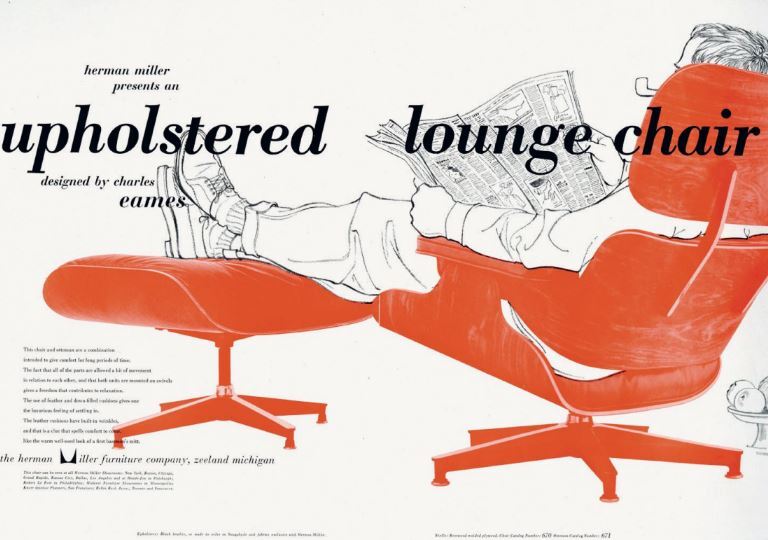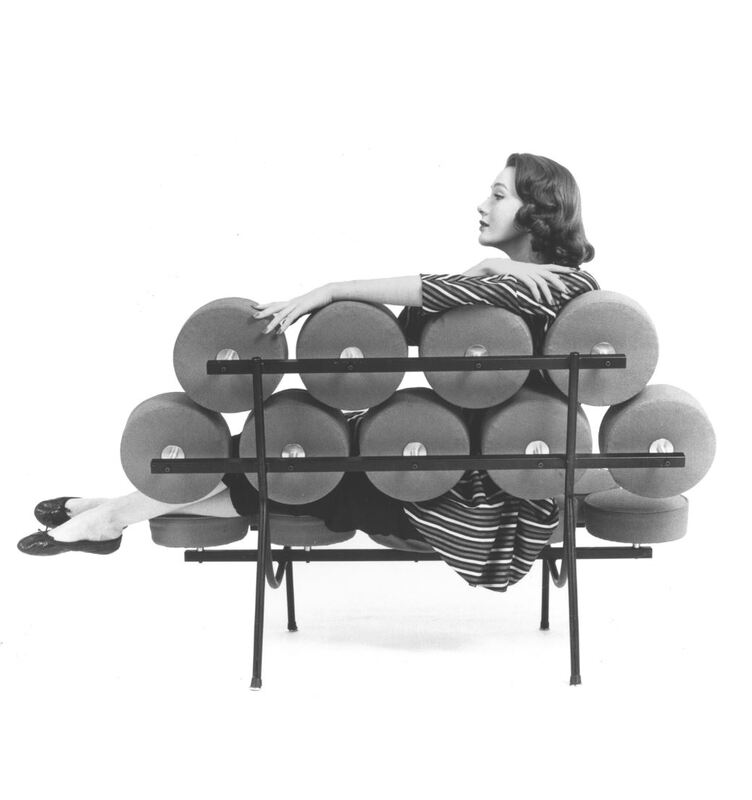Household Dynamics
Modernism for Men versus Women
The non-conformist and “unconstrained by transition” facets of modernism were a step towards liberation that applied only to White heterosexual men. Thus, the way men engaged with modernism in the house was illustrated much differently. Men, on the other hand, are shown with their feet propped up on a chair, having time to engage in a solitary hobby and embrace the nonconformity that is modernism. Furniture within the postwar period was not only designed with roundness and biomorphic styles, stripped of ornate distractions, for visual delight but served a functional purpose to allow the sitter to imagine the comfort they will feel when engaging with it and create a harmonious experience (Wilson, 2021, p. 119). In the example of Herman Miller, we often see men interacting with chairs whereas women are seen sitting in chairs with less design empathy and consideration of comfort. Correspondingly, the design emphasizes the relevance of her body for the male gaze and promotes the idea that women are visual objects to be viewed by a man, even in his home.

